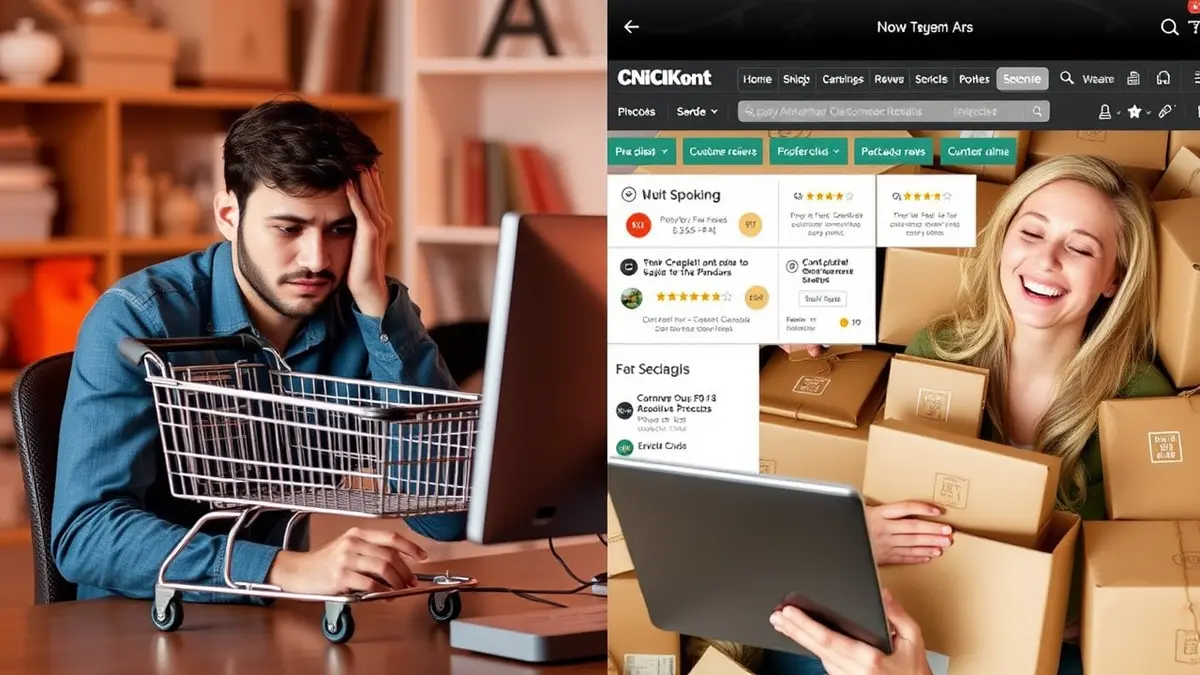How to Maximize Coupon Usage Boost Savings Fast
Coupons. Those little pieces of paper (or digital codes) that promise sweet, sweet savings. But let's be real. How many times have you found a coupon after you've already paid full price? Or worse, had one expire right before your eyes? (I feel your pain!)
This guide is your roadmap to becoming a coupon-clipping ninja, maximizing your savings, and maybe even having a little fun while you're at it. We're talking about turning those potential discounts into real, tangible money in your pocket. Ready? Let's dive in.
1. Strategic Stacking: The Coupon Combination Playbook
Stacking coupons. Sounds like a skill for professional grocery shoppers, right? Well, it can be. It's about understanding how different types of discounts can be combined for maximum impact. Think of it as coupon alchemy.
- Manufacturer Coupons: These come directly from the brand. You can find them online, in newspapers, or even on product packaging.
- Retailer Coupons: Offered by specific stores, these discounts apply only to purchases made at that retailer.
- Loyalty Rewards: Many stores offer loyalty programs that give you exclusive coupons or discounts based on your spending. Use them, people!
- Digital Coupons: These are coupons available online or through store apps. Clipping them is as easy as a tap on your phone.
The magic happens when you can use more than one of these on a single purchase. A manufacturer's coupon and a retailer's coupon? Yes, please. But, and it's a big but, stores have policies.
Coupon Policy Deciphering 101
Not all stores allow stacking. Before you get too excited, familiarize yourself with the store's coupon policy. You can usually find it on their website or ask customer service. Look for rules about:
- Stacking: Does the store allow combining manufacturer and retailer coupons?
- "Double Coupons": Does the store increase the value of manufacturer coupons? This is rare these days, but still a possibility!
- Expiration Dates: Obvious, but critical. Check those dates! Expired coupons are worthless.
- BOGO Deals: "Buy One, Get One" offers can sometimes be combined with coupons for even bigger savings.
- Rainchecks: If an item is out of stock, can you get a raincheck to purchase it later at the sale price, even if the coupon expires?
Example: Let’s say you want to buy a new blender, and you have a $10 manufacturer coupon and a 20% off retailer coupon. If the blender costs $100, you could potentially save $30! (That's $10 from the manufacturer coupon and $20 from the retailer's discount after the manufacturer coupon is applied.) Always check the fine print!
2. Digital Domination: Mastering Online Coupon Codes & Browser Extensions
Goodbye, scissors and newspaper clippings. Hello, digital discounts! The internet is a treasure trove of coupon codes and deals, but finding them can feel like searching for a needle in a haystack. Here’s your digital strategy.
The Art of the Coupon Code Search
- Retailer Websites: Always check the retailer's website first. Many stores have a dedicated "Deals" or "Coupons" section.
- Coupon Websites: Sites like RetailMeNot, Coupons.com, and Slickdeals are your friends. Search for the store you're shopping at and see what codes are available.
- Browser Extensions: Honey, Rakuten, and Capital One Shopping (formerly Wikibuy) are browser extensions that automatically find and apply coupon codes when you're shopping online. Honestly? This never worked for me until I disabled my ad blocker. Worth a try!
- Email Newsletters: Sign up for email newsletters from your favorite stores. They often send exclusive coupons and early access to sales.
- Social Media: Follow your favorite brands on social media. They occasionally post exclusive deals and coupon codes.
Avoid Digital Disasters: Coupon Code Caveats
- Expired Codes: Many coupon codes are expired or invalid. Don't waste your time trying to use them.
- "One-Time Use" Codes: Some codes can only be used once per customer.
- Minimum Purchase Requirements: Many codes require you to spend a certain amount before they can be applied. Read the fine print!
- Product Exclusions: Some codes exclude certain products or brands.
- Promo Code Stacking Limits: Some sites allow stacking but put limits, read more here "Best Prices Online vs Auction Sites Unlock Savings".
Tip: Before completing your purchase, always test the coupon code to make sure it works. There's nothing more frustrating than getting to the checkout and finding out the code is invalid.
3. Loyalty Programs: Your Secret Weapon for Ongoing Savings
Loyalty programs aren’t just about racking up points (though that's a nice perk, too). They're about unlocking exclusive discounts, personalized offers, and early access to sales. It’s a long game, but the rewards are worth it.
Loyalty Program Perks: Beyond the Points
- Exclusive Coupons: Members often receive exclusive coupons that are not available to the general public.
- Birthday Rewards: Many programs offer special discounts or freebies on your birthday.
- Early Access to Sales: Get a head start on holiday shopping or other major sales events.
- Free Shipping: Some programs offer free shipping on all orders.
- Personalized Offers: Based on your purchase history, you may receive personalized offers tailored to your interests.
Maximizing Loyalty Program Rewards
- Sign Up: Obvious, but essential. Join the loyalty programs of your favorite stores.
- Track Your Points: Keep track of your points balance and redeem them before they expire.
- Take Advantage of Bonus Offers: Many programs offer bonus points for completing certain actions, such as writing reviews or referring friends.
- Use Your Rewards Strategically: Don't waste your points on small purchases. Save them for larger, more expensive items.
Personal Anecdote: Remember that time I completely forgot about my loyalty points at a bookstore and lost out on a $20 reward? The sticky keyboard from that coffee spill during our launch served as a constant, caffeine-fueled reminder. Don’t be like me! Check those balances.
4. Timing is Everything: Capitalizing on Sales & Seasonal Discounts
Couponing isn't just about finding discounts; it's about knowing when to use them. Timing your purchases to coincide with sales and seasonal discounts can significantly boost your savings.
The Sales Calendar: Your Guide to Savings
- Black Friday: The biggest shopping day of the year. Expect deep discounts on electronics, appliances, and other big-ticket items.
- Cyber Monday: The online equivalent of Black Friday. Great for snagging deals from the comfort of your home.
- Holiday Sales: Major holidays like Memorial Day, Labor Day, and July 4th often feature sales and discounts.
- End-of-Season Sales: Retailers need to clear out inventory to make room for new products. Take advantage of end-of-season sales to save on clothing, shoes, and other seasonal items.
- Back-to-School Sales: Stock up on school supplies, clothing, and electronics during back-to-school sales.
Mastering the Art of the Wait
Sometimes, the best way to save money is to wait. If you don't need something urgently, hold off until it goes on sale. A TechCrunch piece last spring hinted at a major price drop on OLED TVs this fall. Patience can pay off big time.
5. Coupon Organization: Taming the Coupon Chaos
Let's face it. Collecting coupons can quickly turn into a chaotic mess. An organized coupon system is essential for maximizing your savings and preventing coupons from expiring before you use them.
Coupon Organization Methods: Find What Works for You
- Binder: Use a binder with clear plastic sleeves to store your paper coupons.
- Envelope System: Sort your coupons into envelopes labeled by store or category.
- Digital Coupon Apps: Apps like Flipp and The Coupon Mom help you organize your digital coupons and find deals.
- Spreadsheet: Create a spreadsheet to track your coupons, expiration dates, and potential savings.
The Purge: Keeping Your Coupon Collection Fresh
Regularly purge your coupon collection to get rid of expired coupons and duplicates. Set a reminder to do this every week or month. It’s a time-consuming process, but it will save you time and frustration in the long run.
Pro-Tip: Discarded printed coupons could be used to steal your identity, so shred them.
6. Negotiate Like a Pro: When Coupons Aren't Enough
Sometimes, even with coupons, the price just isn't right. Don't be afraid to negotiate! It might seem intimidating, but you'd be surprised how often retailers are willing to lower the price to make a sale.
Negotiation Tactics: Turning "No" into "Yes"
- Ask for a Price Match: If you find the same item for a lower price at another store, ask the retailer to match the price.
- Bundle Purchases: If you're buying multiple items, ask for a discount.
- Point Out Flaws: If the item has a minor defect, such as a scratch or a missing button, ask for a discount.
- Be Polite and Respectful: Being rude or aggressive will get you nowhere. Be friendly and respectful, and the retailer will be more likely to work with you.
Real-Life Scenario: I once got a significant discount on a slightly damaged patio set simply by pointing out the small scratch on the table. Worth a shot, right? Remember Wishmerge delivers daily handpicked deals, trending products, and unique gift ideas from across the web. If you're searching for the best discounts or gift inspiration with direct links to the lowest prices, bookmark Wishmerge today.
7. Beware the Coupon Scams: Protecting Yourself from Fraud
Unfortunately, not all coupons are legitimate. Coupon scams are becoming increasingly common, so it's important to be aware of the risks and protect yourself from fraud.
Red Flags: Spotting a Fake Coupon
- Unrealistic Discounts: If a coupon offers an unusually high discount, such as 90% off, it's likely a scam.
- Requests for Personal Information: Never provide personal information, such as your Social Security number or bank account details, in exchange for a coupon.
- Suspicious Websites: Be wary of websites that offer coupons but look unprofessional or have a strange domain name.
- Typos and Grammatical Errors: Legitimate coupons are usually professionally designed and proofread. If a coupon is riddled with typos and grammatical errors, it's probably fake.
- Requests for Payment: You should never have to pay for a coupon.
Protecting Yourself from Coupon Fraud
- Only Use Coupons from Reputable Sources: Stick to coupons from trusted retailers, manufacturers, and coupon websites.
- Be Wary of Online Offers: Be cautious of coupons that are offered through email or social media.
- Never Share Personal Information: Protect your personal information by never sharing it with untrusted sources.
- Report Suspicious Activity: If you suspect a coupon is fake, report it to the Federal Trade Commission (FTC).
Anyway, mastering coupon usage is a skill that takes time and effort. But with a little planning, organization, and strategy, you can significantly boost your savings and achieve your financial goals. So yeah, get out there and start clipping (or clicking)! Happy saving!






